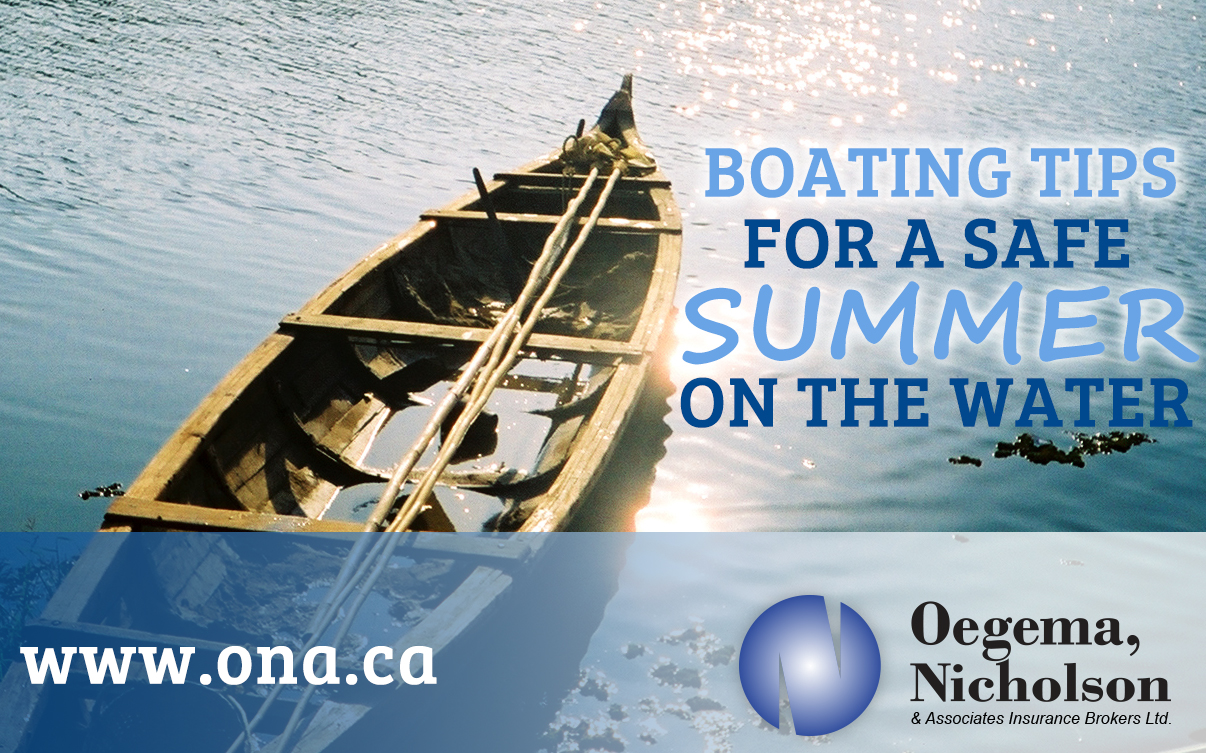5 Boating Safety Tips for a Super Summer
Getting out on one of Ontario’s thousands of bodies of water is one of the best parts of the summer. There’s no doubt that boating is one of the highlights of the year for many people. But whether it’s a speedboat, a cruising pontoon, a sailboat, a canoe or a kayak, staying safe is the most important thing. There are preventable boating accidents every year, which is truly unfortunate as the basic principles of boating safety are really simple and easy to follow through on. With that in mind, here are some very basic tips to ensure that the fun lasts all summer, and you, your friends, and your loved ones remain safe.

Lifejackets Should Be Worn by All, At All Times:
It simply doesn’t matter how safe the situation seems, or how good of a swimmer you are (and truth be told, most people overestimate their own swimming ability.) Without fail, every summer, there are drowning deaths from people of all ages, that could be easily prevented by wearing lifejackets or personal flotation devices. Cold water can seriously inhibit your ability to move your muscles in only a couple of minutes or less. Just don’t take chances.
Alcohol & Boating: Always a no-no.
You wouldn’t get behind the wheel of your car when you’re intoxicated, but for some reason, some people just don’t get the same message in regards to boating. Alcohol impairs your judgment and destroys your ability to safely pilot a boat. And when drinking alcohol, you’re more affected by things such as the sun, vibration and noise. Finally, should the worst happen, it negatively affects your swimming ability. As a boat operator, you are responsible for your own safety, and the safety of others on board – and that responsibility should be treated with the utmost respect.
Get Your P.C.O.C. (license):
In Ontario (and throughout Canada), you must have a
Pleasure Craft Operator’s Card in order to operate a powered boat of any size or horsepower. It’s simple to study for and not having it could mean a $250 fine if you’re caught piloting a boat without it. Several organizations offer boating safety courses, either in-person, online or via correspondence. These courses (and the test) cover basic boating safety, as well as things like nautical terms, buoy systems, right-of-way, etc. There’s really no excuse for not getting a license, and nobody should operate a boat in Canada without one.
Plan Ahead:
Check on local weather forecasts and for any advisories before heading out on the water. The weather can turn quickly and it’s extremely hazardous to be out on the water during a rainstorm, particularly if there is lightning in the area. Always let someone on shore know where you are going and how long you plan to be out for.
Have Other Safety Equipment On Board:
Some standard safety and emergency gear that every boat should have on board includes a fire extinguisher (for motor boats), a map (if applicable), flares, a first-aid kit, and a cell phone. These should be kept in a floating pouch so that they will be reachable and usable in the event of capsizing. Planning on getting out on the water this summer? Make sure your boat is insured! Talk to Oegema Nicholson about options for
boat and watercraft insurance, or get a
free quote online. Have a safe and happy summer on the lake!



